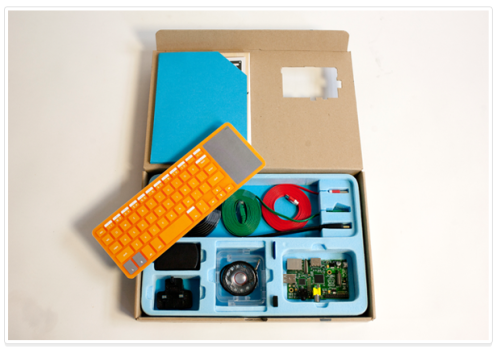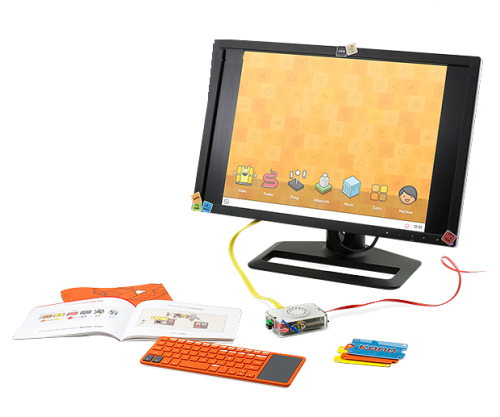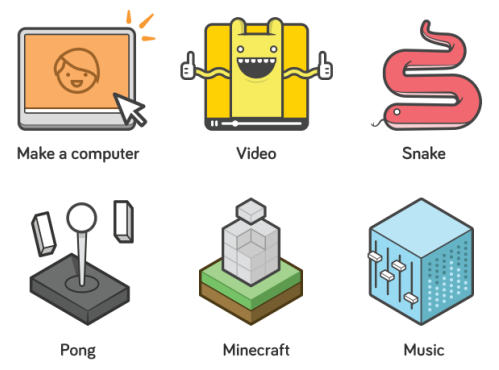Anyone interested in learning about technology will appreciate all that Kano has to offer. In short, it’s a computer and coding kit that’s as simple to put together as a Lego house, yet provides the user with a fully functional computer as the final product.

Kano is powered by the Raspberry Pi microcomputer system. Once everything’s hooked up, it allows users to play games like Pong and Snake, listen to music, and watch HD video.

Included in each kit:

1 – Kano books, illustrated and intuitive
2 – Kano OS and Levels on an 8-Gbyte SD card
3 – DIY speaker
4 – Raspberry Pi Model B
5 – Kano keyboard combo
6 – Custom case
7 – Card mods and stencils
8 – Stickers
9 – Cables: HDMI, Mini-USB
10 – Smart power plug (all region pins available)
11 – Wi-Fi powerup
The Kano kit follows a year’s worth of the Kano team’s time spent making computers with hundreds of kids, teachers, engineers, and artists. It’s meant to be a simple, fun introduction to the world of technology for early-stage DIYers of all ages.
Watch a Kano computer get built in 107 seconds:
In addition to providing a great user-builder experience, Kano is also great for teaching coding. The program gives control and freedom to the user to explore the world of coding and create fun, engaging programs that they can further customize as their skill level increases.
The team points out that they’re fond of visual programming languages, in particular “Scratch,” and so have incorporated this particular methodology into teaching users how to build video games on the Kano computer. They call their product “Kano Blocks,” and it basically allows users to connect blocks of code together, output Python or Javascript, and see the changes they made to the games for themselves right as they’re made.
Kano’s software combines Kano OS (a distribution of Debian Linux) with an interface designed to look somewhat like a console game. There are six Kano levels that the user is tasked with completing, which include a bevy or projects ranging from the creation of video games like Pong, Snake, and Minecraft, to creating video files, uploading music, and more.

In addition, the program also offers users the option of using Scratch, Codecademy, and “Hacking Fundamentals,” thereby providing a full menu of options as the user becomes more familiar with the world of the Linux shell.
Kano was put on Kickstarter with the goal of achieving $100,000. As of the time this article was written, it surpassed the $250,000 benchmark, and still has 28 days to spare.
To learn more, or to contribute to Kano’s campaign, check out the group’s Kickstarter page.
Advertisement
Learn more about Electronic Products Magazine





